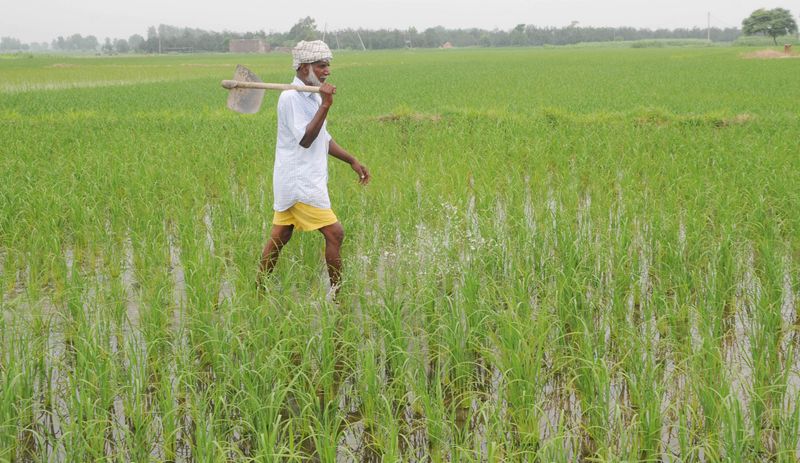Punjab Bans Hybrid Rice Seeds
Recently, the Punjab government imposed a ban on the cultivation of hybrid rice varieties, citing concerns over groundwater conservation and environmental pollution. This decision has ignited a fierce debate among farmers, environmentalists, and the rice milling industry. While the government argues that hybrid rice leads to lower milling efficiency and increased breakage, farmers assert that hybrids are crucial for water efficiency and higher yields.
Background
Punjab is a major rice-producing state, cultivating paddy across approximately 3.2 million hectares. Hybrid rice varieties account for about 5-6% of this area. Farmers have historically relied on hybrids for their shorter growth duration and higher yields, particularly in regions with saline groundwater. Varieties such as Pusa-44 and other hybrids are known for their efficiency and profitability.
Reasons for the Ban
The Punjab agriculture department’s ban is primarily aimed at addressing issues of lower rice recovery and excessive breakage during milling. Rice millers reported that hybrid varieties produced a lower out turn ratio (OTR) than the 67% mandated by the Food Corporation of India (FCI). The government claims this results in financial losses for millers and lower prices for farmers.
Farmers’ Response and Protests
Farmers, represented by organisations like BKU (Ekta Ugrahan), have protested against the ban. They argue that hybrid varieties are essential for maintaining productivity and profitability. Farmers have brought into light that hybrids can yield up to 36 quintals per acre, offering better financial returns compared to traditional varieties. Protests have been held to demand the revocation of the ban, especially concerning the necessity of hybrids in areas with poor water quality.
Environmental Considerations
Environmentalists have raised concerns about the timing of paddy transplantation rather than the use of hybrid seeds. They argue that advancing transplantation dates can be more harmful to the environment than the use of hybrids. The ban on Pusa-44 has been acknowledged due to its high water consumption and stubble production.
Industry Implications
The rice milling industry has seen growth, with the number of mills increasing from 3,500 to nearly 5,500 in recent years. However, millers face challenges in processing hybrid rice due to increased breakage and chalkiness. Experts suggest that outdated milling technology contributes to these issues. The industry advocates for better regulation rather than outright bans on hybrid seeds.
Legal Context
The ban raises questions about its legality under the Seed Act of 1966 and the Seed Control Order of 1983. Experts argue that the Punjab government lacks the authority to prohibit the sale of hybrid varieties that have been officially notified by the Centre. The law stipulates that state governments can regulate but not ban approved seed varieties.
Month: Current Affairs - April, 2025
Category: Agriculture Current Affairs






